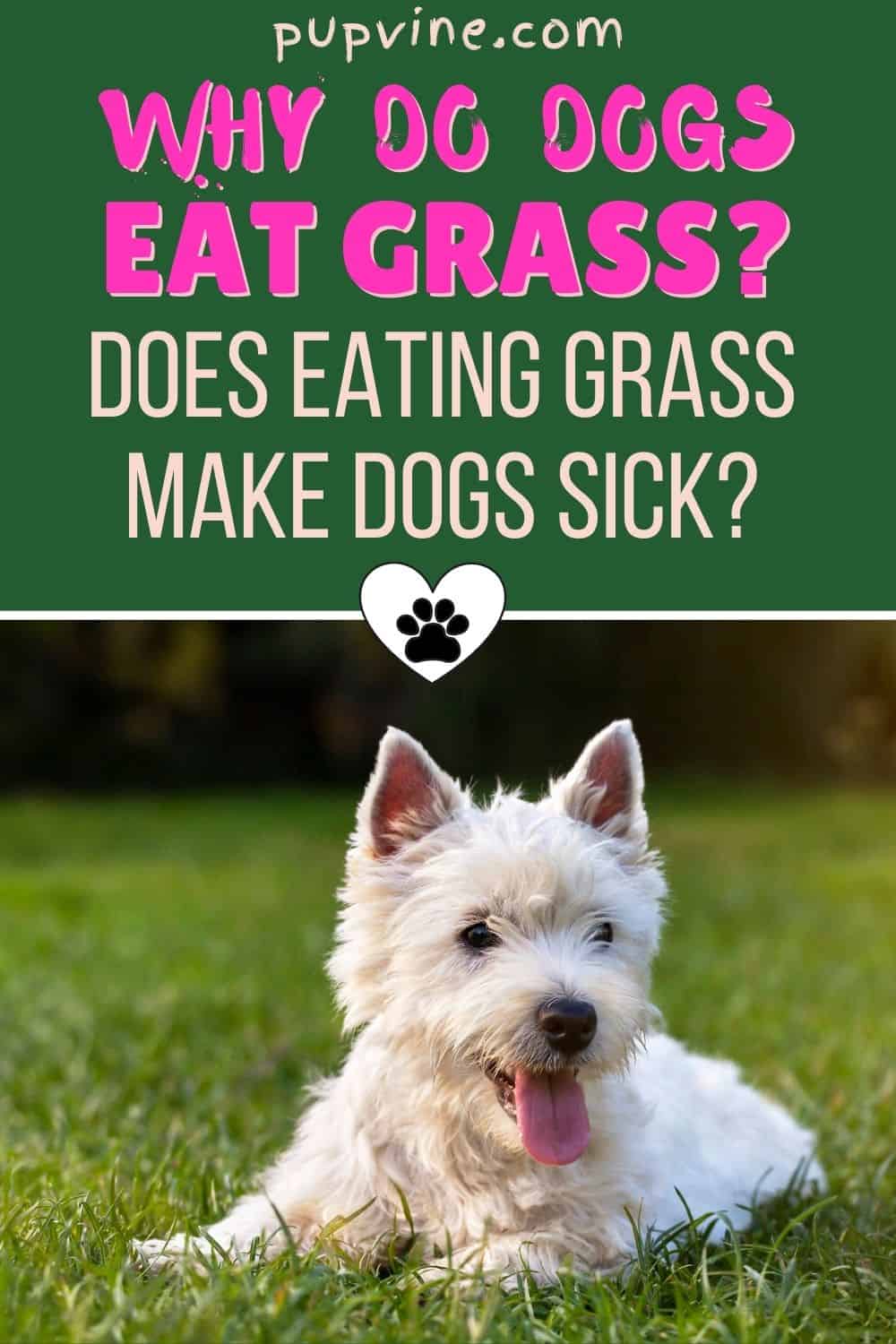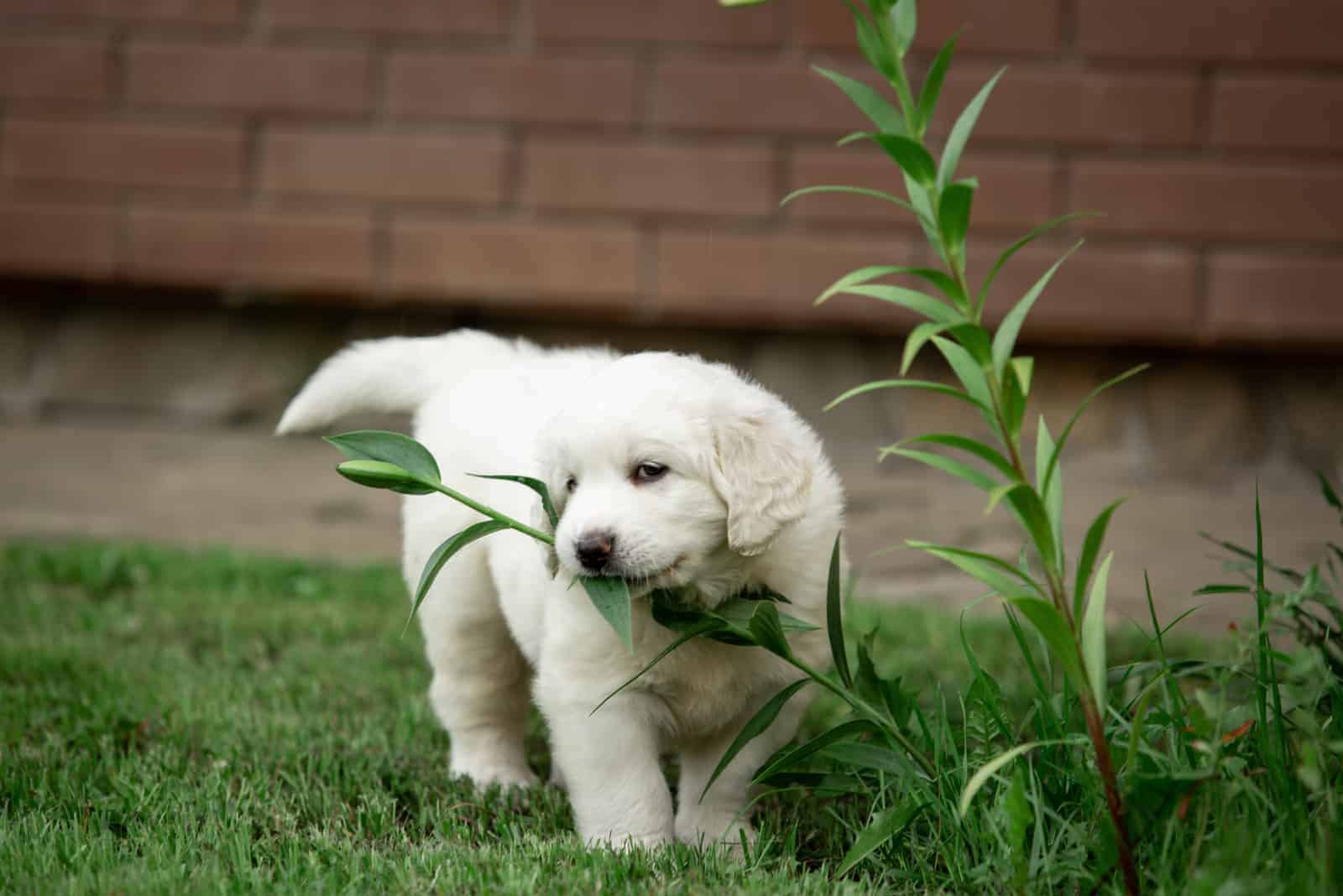We all know that dogs can be strange creatures at times. You might be out in the park, enjoying a hike through the forest, or even watching them zooming about the backyard. Then you notice that they have stopped, with their head stuck in a patch of long grass. They snap at a clump of green blades, chew on a bunch of them, and then swallow the lot.
The trouble is, they’ll sometimes reject it, either there and then, or, more annoyingly, on your floor back home!
Most dog owners will have seen this behavior at some point, scratched their heads, and wondered to themselves, why the heck is my dog eating grass?
After all, you go to the trouble of providing them with dog food that they love, whether it’s nutritious kibble or canned ‘wet’ food.
So, is this normal dog behavior? Is it because they have a nutritional deficiency? More importantly, is eating grass harmful to dogs?
The commonly accepted explanation was that dogs ate grass as a form of medication to make themselves vomit because they were suffering from an upset stomach. The problem with this theory is this: did the dog eat the grass to make itself vomit and ease its aching stomach, or did eating the grass give the dog an upset stomach and make it vomit? Many dogs don’t show any other symptoms before this happens, making it difficult to determine the truth!
Plant Material In A Dog’s Diet
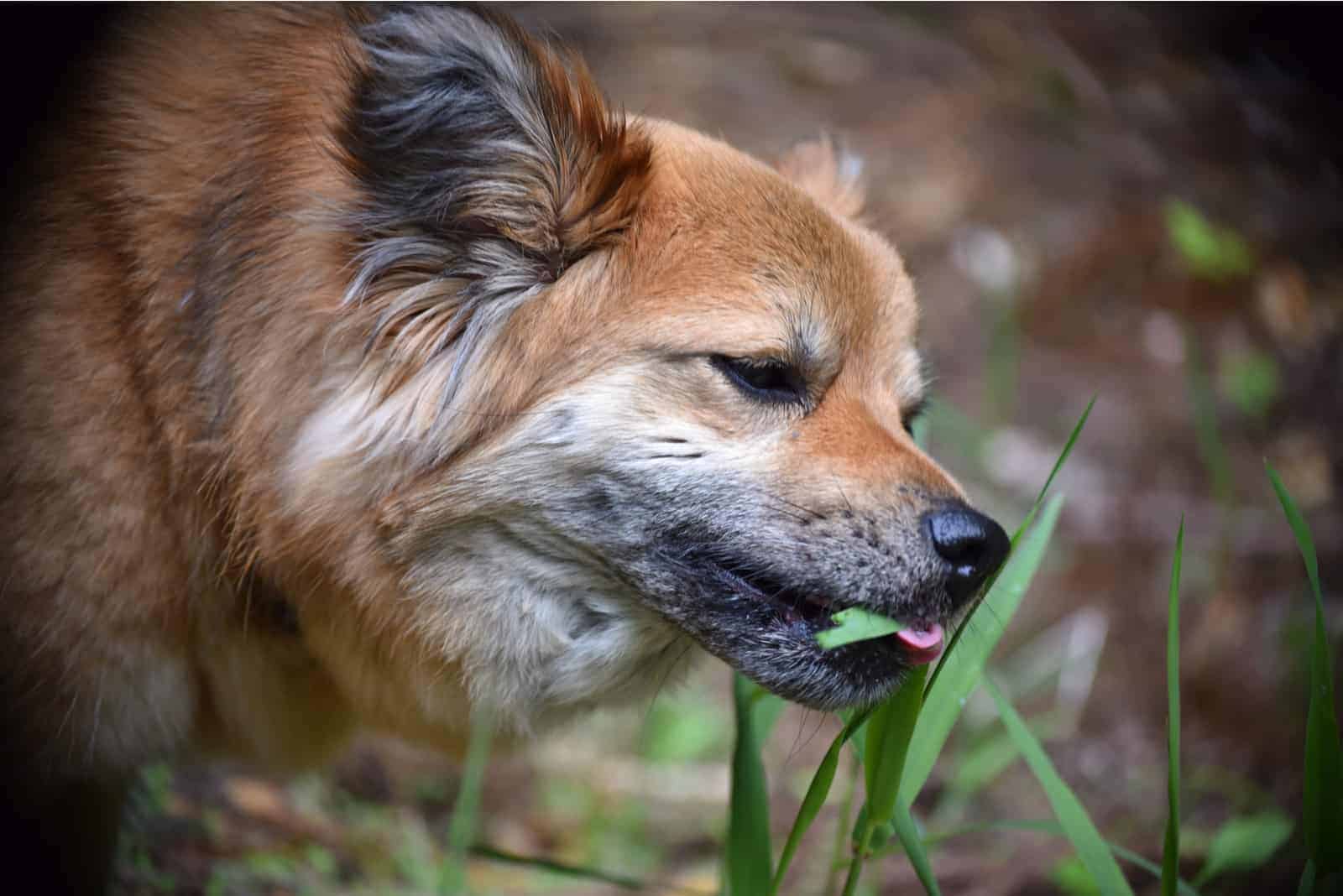
First and foremost, dogs are omnivores. Despite claims to the contrary, recent research proves that they can survive and even thrive on plant-based or meat diets.
Whatever you choose to feed your dog, the most important factors are quality and balance. A balanced diet made up of high-quality dog food is the best way to keep your dog healthy, ensuring that they have all the protein, carbohydrates, fats, vitamins, and minerals they require.
This will include plant material of some description, as roughage (dietary fiber) is essential for their digestive system to function properly. These fibers can’t be broken down by the digestive process, but they contribute to it by increasing the stool’s bulk and size. This makes it easier for the dog to pass the stool and reduces the chance of constipation.
Roughage also gives a fuller feeling after eating, nourishes the colon wall, feeds gut bacteria, and helps the body manage blood sugar levels after eating.
As you can see, fiber from plant material, such as bran and whole grains, is essential for a healthy diet!
Some sources suggest that dogs eat grass because they lack fiber. However, most studies on this subject show that the dogs involved already had a pretty good diet.
Likewise, with the phenomenon known as pica, a disorder characterized by the desire to eat things that are not usually considered to be food. Some experts suggest that dogs eat grass (and other plants) to fill a nutritional need. However, the evidence for this is inconclusive.
In fact, some studies have shown that there is no direct link between a dog’s diet and the habit of eating grass! So, what’s the answer?
Ancient Instincts?
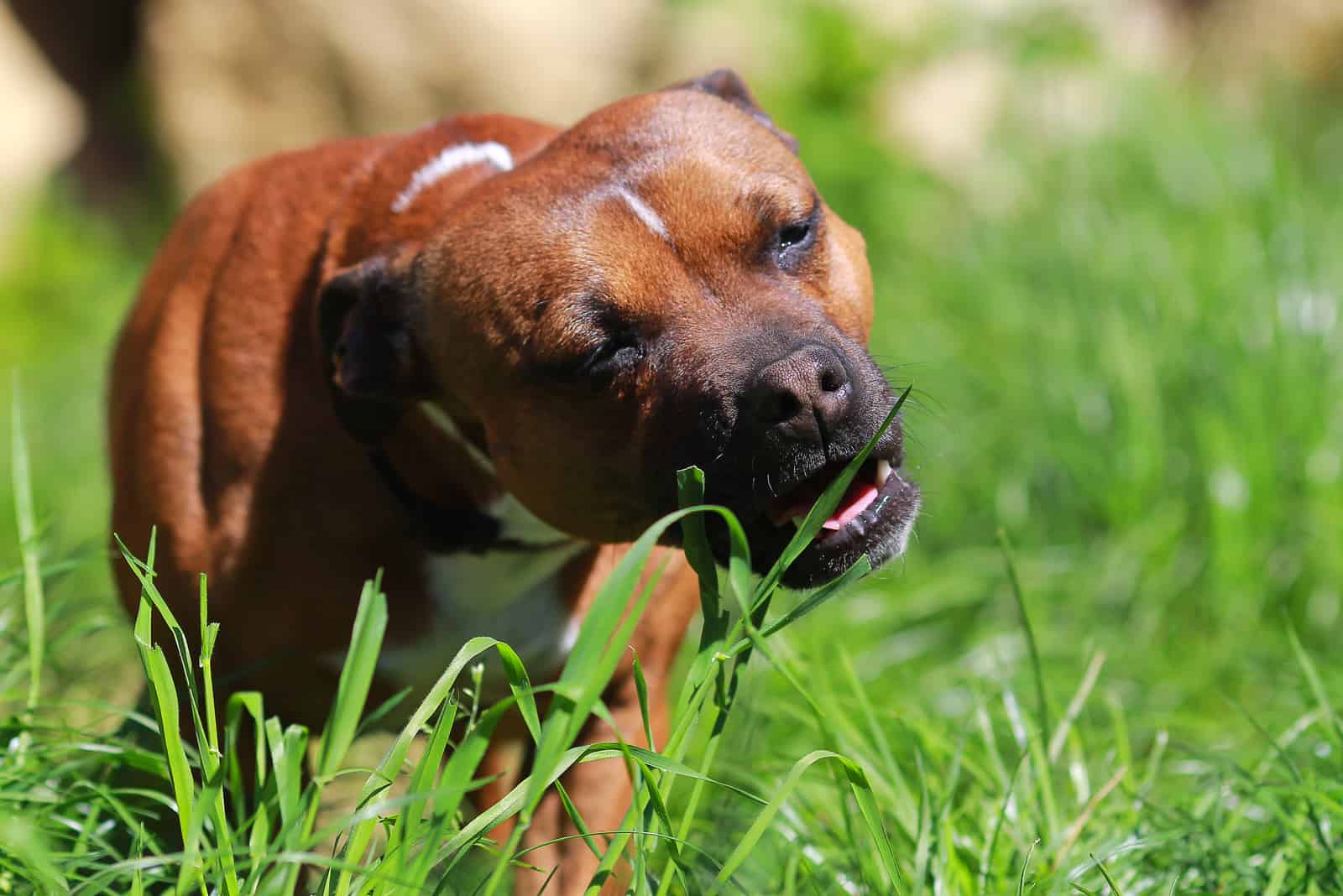
Experts have observed that wild dogs also occasionally nibble on grass. Thousands of years ago, your furry friend’s ancestors didn’t have the luxury of highly-nutritious kibble that came in a handy pack. They were hunters or scavengers, eating what they could find.
This would sometimes include entire animals: meat, internal organs, bones, and the stomach contents, which (as the prey would most likely be a grazing animal) contained grasses.
Although their diet has changed dramatically, their dietary needs remain the same. Thankfully, our pooches can get all they need from the foods we provide.
The fact that wild dogs continue to chomp on grass, just like our own pets, indicates that this is fairly normal behavior for dogs. But it still doesn’t really explain why.
Possible Reasons For Eating Grass
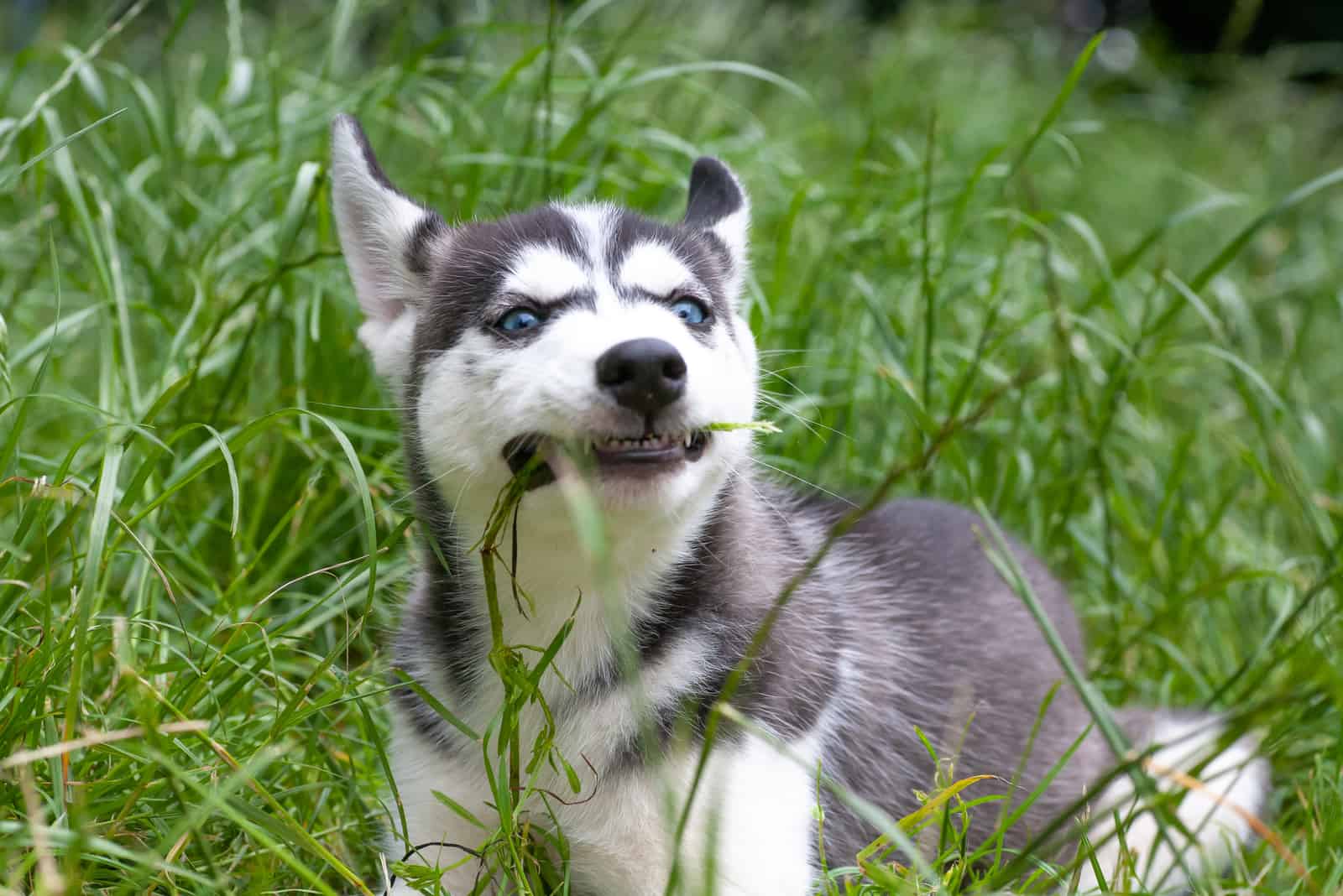
Even though it’s a normal and natural thing, we’d still like to understand why they do it. So here are a few possibilities, other than the ones we’ve already mentioned.
• Intestinal parasites – some veterinarians and animal experts claim that dogs may eat grass to rid themselves of parasites living in the intestines. This is more likely in wild animals, as they don’t have access to the modern treatments that our pampered pooches do. However, that doesn’t give us any clues as to why our dogs still do it!
• Boredom – many vets and animal behaviorists agree that boredom can affect a dog’s eating habits. Chewing on grass might be a sign that they need more stimulation, so try giving them something to do. A new chew toy, a game of fetch, or even an agility course, anything to keep them occupied! Highly-intelligent dog breeds are more likely to display this behavior, so be sure to do some research into ways to keep them stimulated.
• Anxiety – do you chew your fingernails or hair when you’re worried or nervous? Eating grass like crazy could be your dog’s way of showing anxiety over something. Have there been any big changes at home? Any serious illness or family members leaving the fold? Even the little things can affect a dog in a big way. Make sure they know you are there for them and give them some reassurance.
If you don’t treat dog anxiety on time, they might even eat their own puppies!
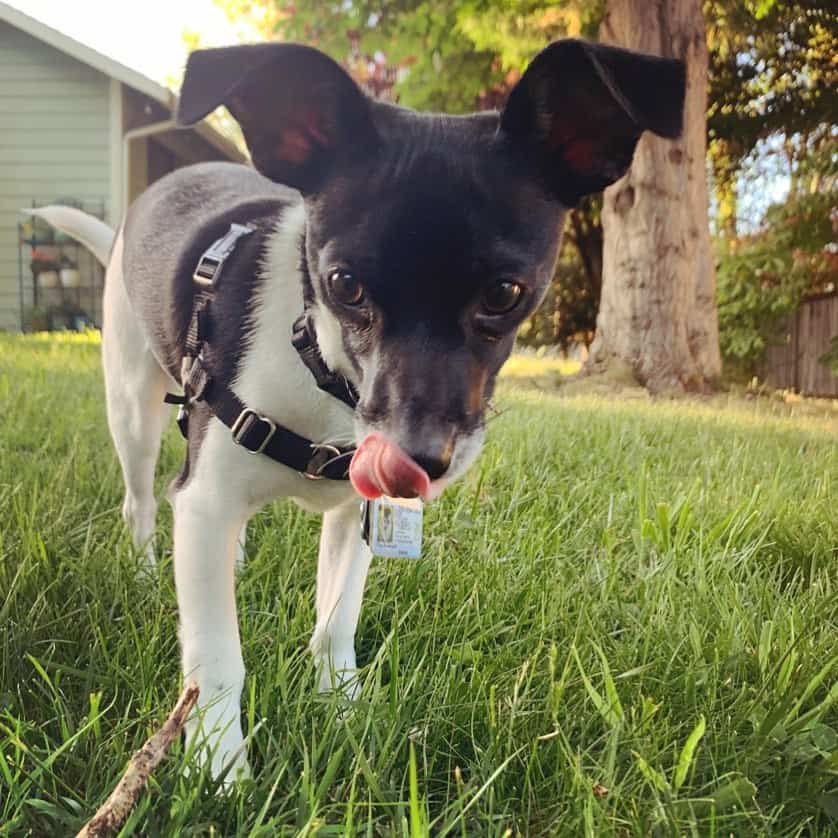
Photo from @ozzypawsbournehas
• Attention seeking – possibly connected with the two previous points, but can also be a problem in its own right. Some dogs crave attention more than others and will constantly seek you out around the house, wrapping themselves around your legs and getting under your feet.
• Immaturity – according to studies, younger dogs are more likely to engage in this behavior than more mature dogs. All pups are inquisitive and curious, always exploring their surroundings and trying new things. Chewing on stuff is just one way they do this, and they’ll set their sights on things other than grass, so you’ll need to take care that you don’t have any toxic plants within easy reach.
• They just like the texture! – it’s a simple enough explanation and as good as any other. It could just be that your dog enjoys the taste and texture of grass. Many studies show that very few dogs vomit after eating grass (usually less than a quarter). If it isn’t excessive, then it shouldn’t be a problem, although you will need to read on to get the full picture.
Can Eating Grass Be Harmful To Dogs?
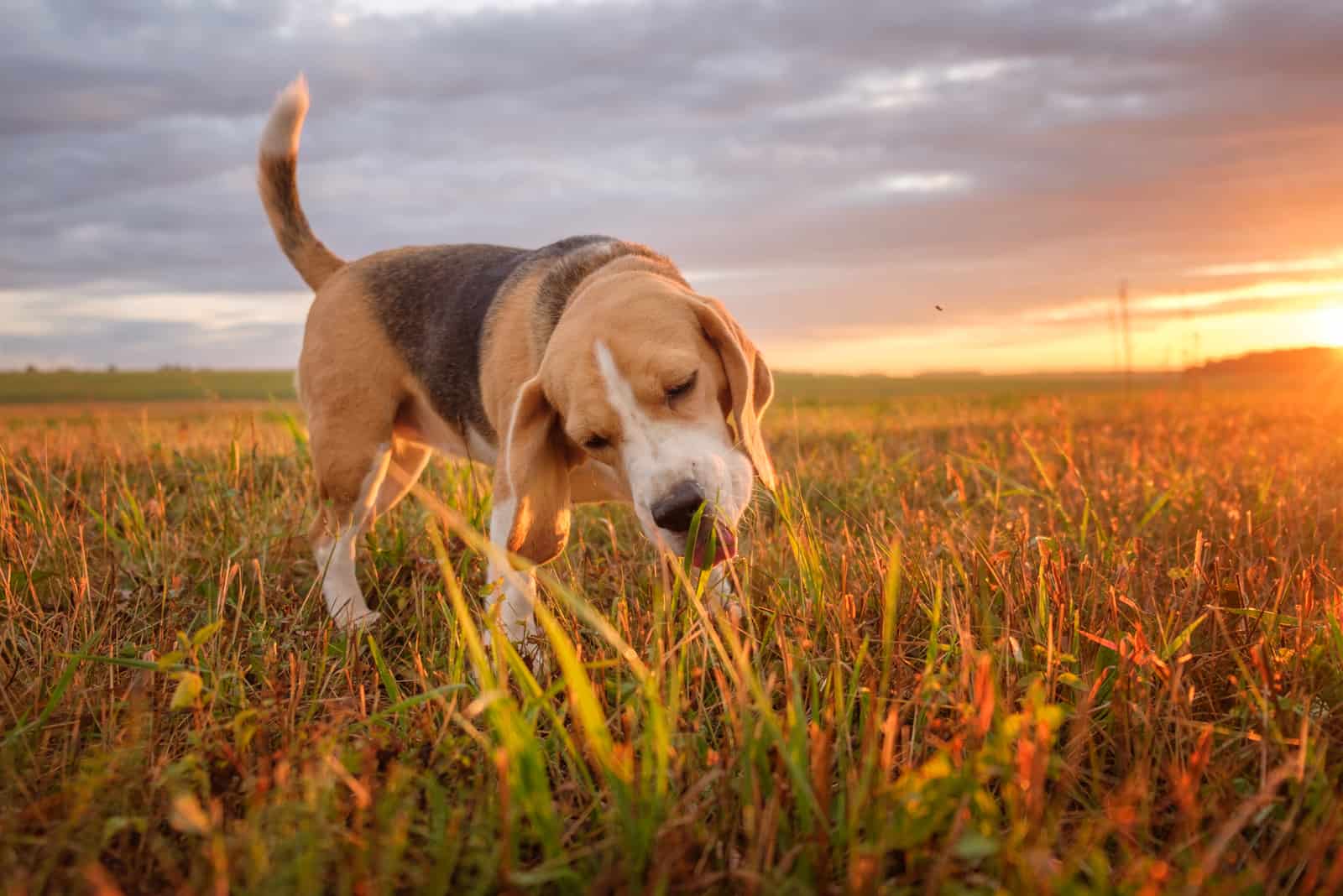
As long as it isn’t excessive, there’s no real reason why you should stop your dog from eating grass. For most dogs, this is an occasional habit and is nothing to worry about. The time to take action is when you notice a pattern of behavior emerging. Then you might want to keep in mind some of the possible reasons given above.
The biggest hazards connected with dogs eating grass are pesticides and herbicides. In your own backyard or garden, this isn’t so much of a problem. You know whether anything has been sprayed and what it might be. You have the choice to apply these chemicals or not, although it’s never a good idea to use them if you have pets.
By their very nature, all herbicides and pesticides are toxic and potentially harmful to humans, animals, and the environment. Some are more toxic than others, but each one can make your pet seriously ill and may even kill them.
If you’re a keen gardener or grow your own fruit and vegetables and you need a way of limiting the damage caused by bugs and pests, there are safer alternatives that are not toxic (and won’t cause environmental harm). There are plenty of recipes online for homemade pest-control solutions.
However, once you are out of your own domain, you have absolutely no idea what has been sprayed and where. Taking a walk by the edge of a field or along a country road? Crop spraying may have taken place, with chemicals drifting onto the grass at the side of the path.
Local authorities sometimes use pest control or weed killers around public places, like parks or greens. Some states have banned the use of certain brands or types following a court case involving someone who claimed that herbicides caused their cancer, and several groups are campaigning against the use of these chemicals in public areas.
However, unless you know for sure, none of this is much help to you!
The best course of action is to keep a close eye on what your dog is chewing on when you’re out and about. As unpleasant as these toxic chemicals are, it is unlikely that your dog will consume enough to cause them any lasting harm. Even so, it could make them ill for a few days, and you’ll need to get them checked out at the vet.
A Quick Recap…
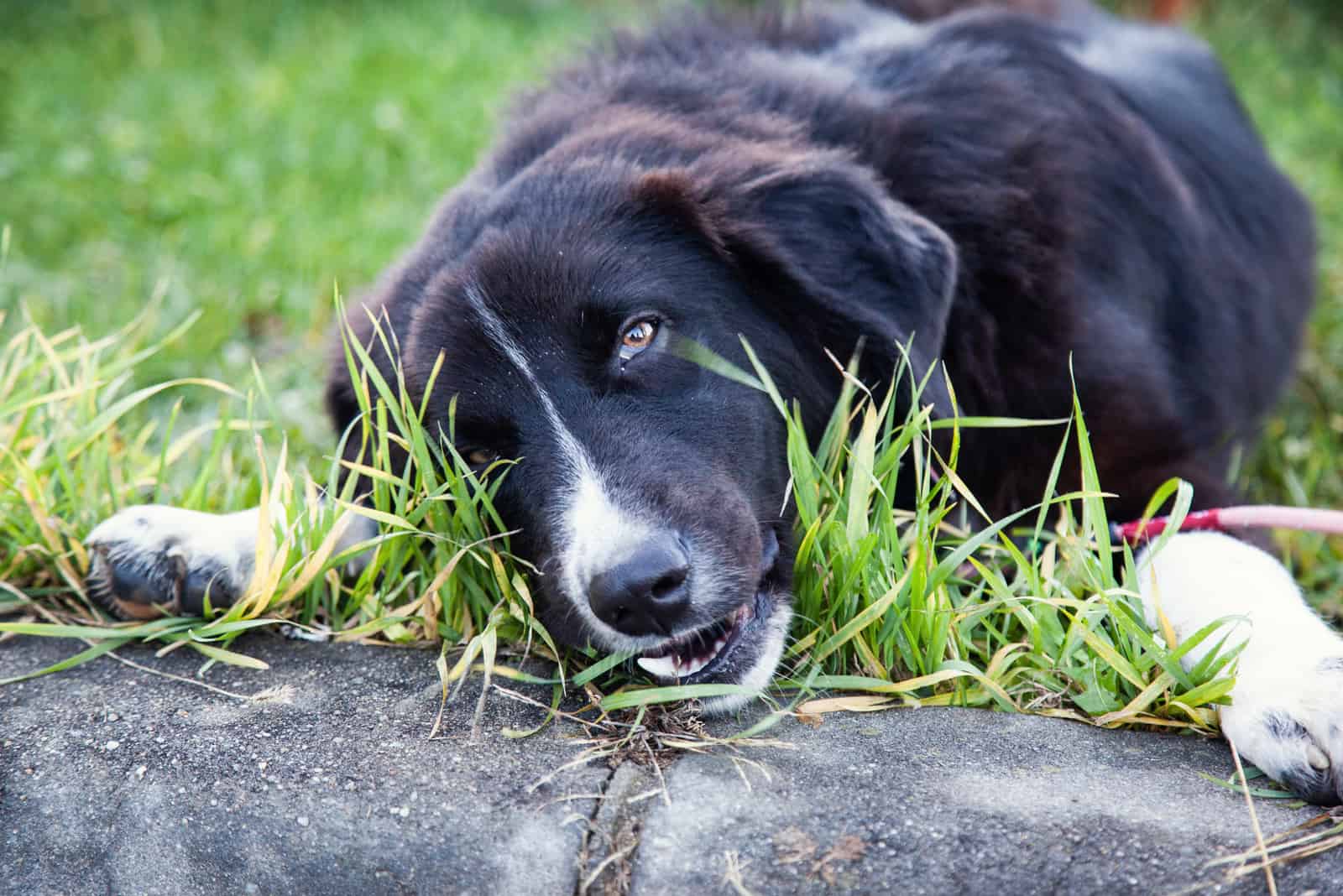
We’ve looked at the most common reasons dogs like to chew on grass, and, as weird as we might find it, it seems to be pretty normal dog behavior and nothing to be too concerned about.
The time to do something about it is when it becomes regular or obsessive, which could signal that something is wrong. Try going through each of the possibilities to find the most likely reason why your dog keeps eating grass.
As grass is a source of fiber, it could be that their diet doesn’t contain enough of it. Evidence has shown that dogs who have been eating grass for years will stop, literally overnight, when they are given a high-fiber diet.
To avoid this situation, ensure that your dog’s food is of good quality and that it provides all they need, including plenty of fiber.
Is your dog getting all the exercise and stimulation they need? Try increasing the length of their daily walk or playtime in the yard or park. If you have a local one nearby, dog parks are a great way of giving them all the fun and exercise they crave. If you own a breed known for its intelligence, you could sign them up for agility classes, herding trials, or special training of some kind.
Make your own obstacle courses and challenges at home. Invent games that involve sniffing out treats or toys. Make mealtimes interesting by getting them to perform a trick or a challenge before they are fed. And always reward them for their efforts!
Some dogs are needier than others. Make an extra special effort to pay them attention but be careful not to reward bad behavior. Whenever possible, have some extra cuddle time, and when you’re out on a walk, you could keep them distracted with a game.
Pups and young dogs like to explore and seek out new experiences. They’ll test most things, including plants, for flavor and texture. It’s a phase that they’ll eventually grow out of, but just keep a close eye on what they’re chomping on. Although grass is a firm favorite, dogs will try other plants, some of which can be toxic. The list is too long to mention here, but some of the
more common plants that are toxic to dogs include tomato plants, aloe vera, milkweed, sago palm, tulips, daffodils, baby’s breath, and amaryllis.
It could be that your poor pooch is anxious about something and isn’t feeling too great. They don’t know how to deal with this, so they chew on grass, just like we might chew on our fingernails. Consider all the possible causes of anxiety that might be making them anxious and try to resolve them, or at least offset it with some kind of distraction or treat. Make a general fuss of them and help them to relax.
Finally, be vigilant when it comes to toxic chemicals in herbicides and pesticides. This will be partly out of your control, but use your common sense and always contact the vet if you suspect your dog has been poisoned.
Other than that, chomping on grass is just something they do. It’s weird, but that’s dogs for you. It’s just one of the many reasons why we adore them.
Read Next:
• Why Do Dogs Pant In The Car: 10 Causes & Solutions You Must Know
• Why Do Dogs Like Sticks? 10 Logical Reasons Why
